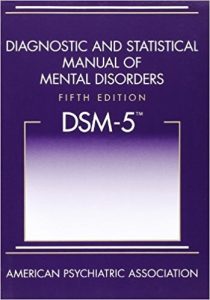On Language, Truth, and Self-Expression: A PEN Ten Interview with Dessa

The PEN Ten is PEN America’s weekly interview series. This week PEN America’s Public Program Manager, Lily Philpott, speaks to Dessa, a rapper, a singer, an essayist, and a proud member of the Doomtree hip-hop crew. Her debut memoir, My Own Devices, was published earlier this year by Dutton.
1. How does your identity as a musician shape your writing? How does your writing shape your music?
Since I was a kid, I’ve loved language—not only for what it could do, but just for what it was. As a reader now, I usually enjoy a clever turn of phrase, a metaphor, or a poetic description more than I enjoy the larger narrative arc. I think short forms—songs, poems, and essays—are naturally well suited to people who like sentences as much as they do stories.
“Since I was a kid, I’ve loved language—not only for what it could do, but just for what it was.”
2. In an era of “alternative facts” and “fake news,” how does your writing navigate truth? And what is the relationship between truth and fiction?
I’m conscientious in the work I present as nonfiction. I sometimes record interviews or conversations to capture dialogue accurately; I research and consult with experts; and I prefer to be fact-checked if possible. And on those occasions that I can’t remember something exactly, that’s easily communicated in the text, just as we would in conversation: “Soraya and I might have been introduced at orientation, but I first remember meeting her as we knelt over our shared CPR dummy—she removed her lipstick with one of the alcohol swabs to make sure I wouldn’t end up wearing it.”
3. Writers and musicians are often influenced by the words and rhythms of others, building up from the foundations others have laid. Where is the line between inspiration and appropriation?
I imagine the threshold between inspiration and appropriation might depend on the relationships between the artists involved: Are they both alive? Both working in the same language? Both being paid for their work? It’s a complicated calculation.
When I’m working on something new, I try not to read or listen to too many contemporary artists who are working in a similar style. Influence is inevitable, but I don’t want to bite or fly to close to anyone else’s contrails.
4. “Resistance” is a long-employed term that has come to mean anything from resisting tyranny, to resisting societal norms, to resisting negative urges and bad habits, and so much more. It there anything you are resisting right now? Is your writing and music involved in that act of resistance?
I don’t often write material with a specific societal or political agenda—partly because I’m not very good at it and partly because I want to make sure that artistic excellence is at the fore. When I do write about policy expressly, it’s usually as an online post, not embedded in a creative piece. All that said, trafficking in true stories does have societal and political ramifications. Telling the truth, about an experience with mental illness, say, can indirectly inform readers ideas on health care. Telling the truth about a trip to New Orleans might involve some reflections on race and class in the United States. I guess I trust the truth to make its own way—I’ve just got to make sure it’s well crafted enough to be seaworthy.

5. What do you consider to be the biggest threat to free expression today? Have there been times when your right to free expression has been challenged?
Trump’s campaign to undermine and discredit the press is a big, serious deal. It’s not reporters to be worried about—it’s the check on power they provide.
As for my own expression: I’ve been asked not to swear on stage; to avoid certain topics during an interview; to avoid the word feminist; and my work has been tagged with trigger warnings online (which I don’t like, to be honest).
6. What’s the most daring thing you’ve ever put into words?
The most daring things I’ve written I haven’t quite worked up the daring to submit for publication. Even the minds of generally decent people can venture into some really bizarre, perverse territory when they’re angry, jealous, afraid, or just idle too long. In some still-rough drafts, I’ve tried to explore the dimmer corners of our mental lives.
7. Have you ever written something you wish you could take back? What was your course of action?
The prose I’ve most desperately wanted to retract was probably written as a text message or an email. Having no satisfying course of action, I think I consoled myself with mumbled expletives.
8. Post, stalk, or shun: What is your relationship to social media as a writer and musician?
Post. For an indie artist, the task of self-promotion often falls on her own shoulders. The downside: Social media management can take up most of the day. The upside: You get to write your own story, craft your own messages, scrap all the standard marketing drivel, and find ways to share your art in posts that are funny, thoughtful, or beautiful.
9. You have spoken about entering the world of music through slam poetry, and have written throughout your musical career. What does your creative process look like? Do you approach the work differently when you’re writing a song or an essay, or working on your memoir, My Own Devices?
I don’t have a disciplined schedule or a mahogany desk in a dedicated writing corner. I just sort of get it in when I can—and often right before it’s due. Ideas usually come to me in little fragments while I’m busy with other tasks, so I’ll jot them down in one of a few a slush documents: Poetry RM, Prose RM, Rap RM—where “RM” stand for Rough Material.

10. If you could require the current administration to read any book, what would it be?
The DSM-5.






